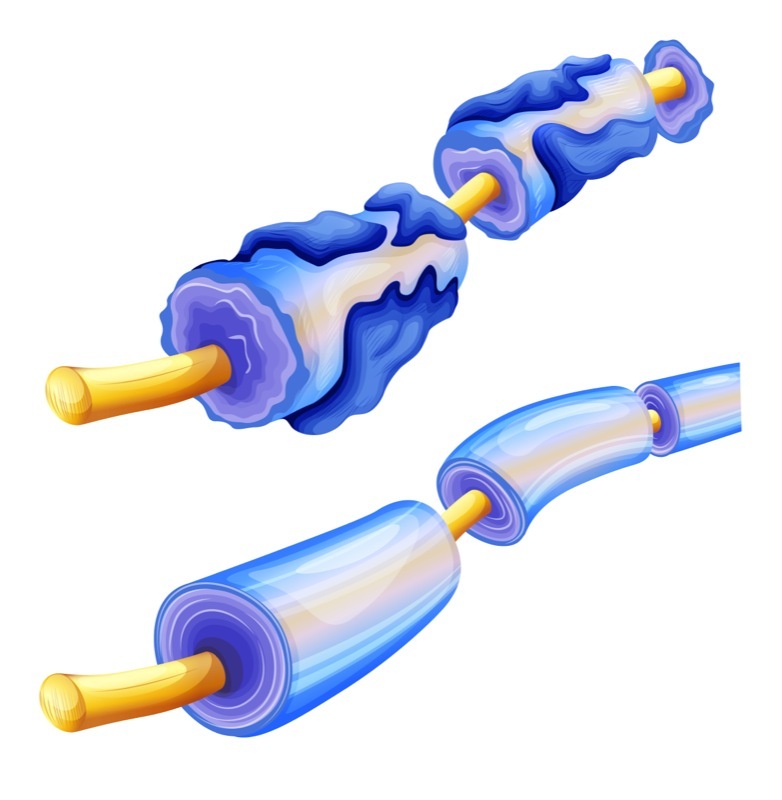NervGen to Advance NVG-291 as Potential Remyelination Therapy for MS
Written by |

NervGen wants to advance the development of NVG-291, its lead investigational therapy for spinal cord damage, as a potential remyelination treatment for multiple sclerosis (MS), the company announced.
Following preclinical data showing that NVG-291 promotes myelin repair and regeneration of damaged nerves in animal models of spinal cord injury and MS, the compound has attracted pharma’s attention as a potential therapy for these and other neurodegenerative conditions.
NVG-291 is based on NervGen’s proprietary technology that inhibits the protein tyrosine phosphatase sigma (PTPσ), a neural receptor that inhibits nerve regeneration. It works in regions of scarring that result from nerve damage. Following such damage, the body responds with natural protective mechanisms, some of which prevent or inhibit regeneration of the nervous system — including the one mediated by PTPσ.
Blocking PTPσ with NVG-291 has been shown to promote regeneration of damaged nerves, improving nerve function in animal models for various medical conditions, according to NervGen.
Until now, NervGen has focused its efforts on exploring NVG-291 for the treatment of spinal cord injury. It plans to submit an Investigational New Drug (IND) application with the U.S. Food and Drug Administration (FDA) in late 2019. If that IND is approved, the company expects to initiate a Phase 1 clinical trial in early 2020 to demonstrate the therapy’s safety in humans.
Now, encouraged by the promising results, the company plans to move NVG-291’s pipeline forward, and include other target indications such as MS, peripheral nerve injury, and heart attack.
“As we advance our lead drug candidate, NVG-291, towards a Phase 1 clinical trial in Q1 2020 for spinal cord injury, we are leveraging the potential for our drug to also promote nerve remyelination as a therapy for MS,” Bill Radvak, NervGen’s executive chairman, said in a press release.
Multiple studies with animal models of several conditions have confirmed the benefit of a PTPσ-targeting compound known as intracellular sigma peptide (ISP). NVG-129 is a molecule that closely resembles ISP (an analogue) — it’s identical in shape but different in composition.
In MS mouse models, ISP was seen to stimulate the production and migration into MS lesions of oligodendrocyte-precursor cells (OPCs), a type of cell involved in myelin repair and regeneration. It enhanced remyelination of damaged nerves, lessened neuroinflammation, and helped mice to recover part of their functional abilities.
At the molecular level, ISP was seen to increase specific protein-cutting enzymes (proteases) that digest and break down glial scar tissue, which would otherwise keep nerves from regenerating.
“Recent positive reaction from the pharma community to the compelling data we have for a number of indications, including MS, has presented a clear opportunity for the Company to become an important participant in this large and dynamic segment of neurodegenerative diseases management. Importantly, the clinical data from our planned Phase 1 trial will provide us with key foundational knowledge that is transferrable to multiple indications for developing NVG-291,” Radvak said.
NervGen’s technology was developed in the laboratory of Jerry Silver, PhD, a professor at Case Western Reserve University in Cleveland. Silver is a leading researcher in spinal cord injury and regenerative medicine.


